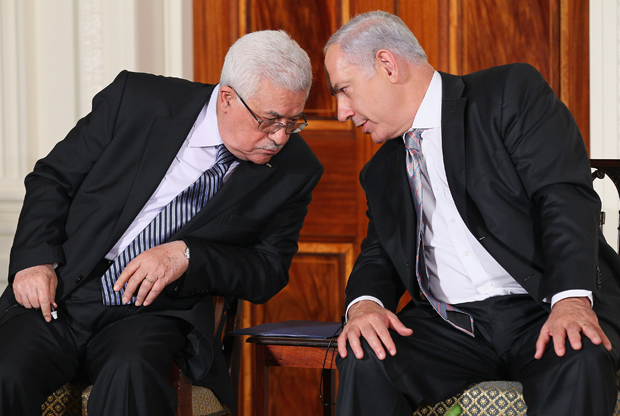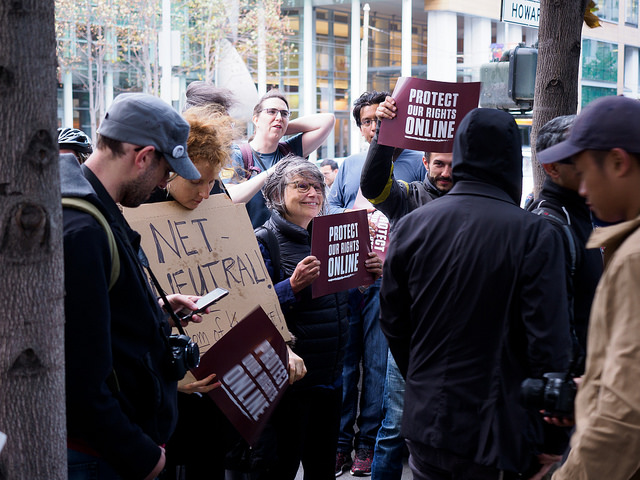In March, Saudi officials delivered President Donald J. Trump‘s “deal of the century” to the president of the Palestinian Authority, Mahmoud Abbas. The “deal,” however, was essentially an indictment that urged Palestinians to give up their long struggle for self-determination and freedom in exchange for some cash handouts and a couple of infrastructural projects. Palestinians immediately rejected this so-called deal. While Abbas refused to even read the document, Saeb Erekat, a veteran Palestinian diplomat, called it a ploy whose aim was to terminate the Palestinian cause.
The motivations behind Washington’s latest maneuvers vis-à-vis the Israel-Palestine conflict appear to be two-fold. First, fully normalizing Israel’s relations with the Arab world, particularly the Arab Gulf, and eventually building an Arab-Israeli consensus against an expansionist Iran. Relegating the Palestinian cause to the backburner is an essential precondition to building this anti-Iran front.
For Palestinians, watching their interests being abandoned for predatory geopolitical interests is not an uncommon occurrence. Right from the beginning of the American-led “peace process,” the terms of any possible settlement have been dictated by Zionist imperatives, aimed at maintaining Israeli dominance over Palestinian territories as well as the entire region.
The entire charade of the two-state solution primarily serves Israeli interests. This was ably demonstrated by the 1993 Oslo Accords that were guided by the two-state framework. Dubbed by late Palestinian American Professor Edward Said as the “Palestinian Versailles,” the accords, in effect, formalized Israeli control over entire historic Palestine while ensuring Israel’s existence as a majoritarian Jewish state and shielding it from the so-called “demographic threat” of a growing Arab population.
History of Two-State Solution
The history of two-state solution merits closer attention. Contrary to popular belief, the idea finds its roots in Zionist designs focused on maximizing the annexation of Palestinian land. As soon as the nascent United Nations passed the 1947 plan to partition Palestine – that designated 56 percent of the area for Jews who constituted not more than one-third of the total population at the time – Zionist leaders welcomed the proposal. On the contrary, Palestinian leadership unanimously opposed any plan for the partition.
The Palestinian liberation movement remained committed to creating a single secular state within historic Palestine until 1970s. However, in addition to unquestioned American support for Israel’s continued existence as an exclusively Jewish homeland, the realization that Israel was here to stay forced the Palestinians to change tracks and demand a separate state.

Additionally, the insistence of the international community on the two-state solution has strategically aided Israelis. A nominal commitment to the two-state solution, particularly in the aftermath of the Oslo accords, helps Israel in subcontracting the military rule to Palestinian Authority, while simultaneously colonizing more and more Palestinian land without the fear of any substantial consequences. Besides, Israel keeps a large non-Jewish population in occupied West Bank, Gaza, and Jerusalem under separate but strictly regulated administrative spaces to ensure continued supremacy of the Jews throughout historic Palestine.
Minimalizing Israel’s Responsibility
Under the framework of two states, all discussion on the Palestinian right to self-determination is predominated by Palestinian compliance and Israel’s security. The carrot of two states enables Israel and its allies to escape all calls to reach any substantial resolution and defer Palestinian mass-mobilization in occupied territories, Gaza and, most crucially, inside Israel. Keeping Palestinians constricted within a seemingly permanent political limbo of a fragmented, pseudo-state also minimizes Israel’s responsibilities as an occupying power.
If the elusive dream of a separate Palestinian state is ever realized in the distant future, it would hardly bring an end to the Israeli-Palestinian conflict. Israeli incursions into the separate Palestinian state would likely increase and therefore transform the conflict from intra to inter-state.
Due to a complex network of economic and kinship ties, it is impossible to reach a strict separation between the two states. Creation of a separate Palestinian state would also embolden the elements in Israeli politics, that regularly calls for uprooting Palestinians living within the country and resettling them in occupied territories and Gaza. In other words, another ethnic cleansing of Palestinians living within Israel might ensue.
Facts on the ground also paint a grim picture of any two-state settlement. Israel has built a matrix of colonial domination around and within what was touted to be a Palestinian state. Under unquestioned state patronage, about 600,000 settlers currently live in occupied territories including East Jerusalem. These numbers are only on the rise. Evicting such a huge population is an unimaginable scenario.
Additionally, the settlement infrastructure including roads and the so-called “Apartheid Wall” has eliminated all possibilities of a contiguous Palestinian state to arise. Experts point out that even if the Oslo accords were fully implemented under the current scenario, Palestinians would only gain 120 fractured, non-contiguous enclaves on 40-50 percent of the West Bank, equaling 11 percent of historic Palestine.
Further Fragmenting the West Bank
While some maintain the view that the mutual land swaps between Israelis and Palestinians could work, they conveniently ignore the fact that some settlement blocs like Ariel are located deep inside the West Bank. Therefore, in reality, the land swaps would only further fragment the already shattered West Bank.
With time, an increasing number of Palestinians, as well as Israelis, have grown weary of a two-state solution. According to a recent poll conducted by Tel Aviv University’s Tami Steinmetz Center for Peace Research and the Ramallah-based Palestinian Center for Policy and Survey Research, the support for two-state solution amongst both Palestinians and Israelis has dwindled to 43 percent, the lowest in over a decade.
“Two states are neither possible nor realistic,” Fatma Ghadeer, a Palestinian student living inside Israel told me. “It does not in any way contribute to Israel’s sustainability and long-term vision as a colonial state that seeks to expand rather than to shrink,” she said. “We would either be asked to leave or, in the best-case scenario, our misery and the discrimination against us will only increase further.”
Inside occupied territories, the skepticism towards the two-state resolution is even more pronounced and has gradually evolved into collective execration against the Palestinian Authority, led by an aging Mahmoud Abbas and his associates. Many Palestinians see the Authority as actively collaborating with the vicious military occupation, particularly assisting the latter in stifling grassroots dissent.
“Some see the Palestinian Authority as collaborators while others see them as genuinely trying to salvage the two-state solution,” Ghadeer Abd-Rabou, an activist from the occupied West Bank city of Nablus said. However, she believes that it is still too soon to depart from the two-state solution and discuss alternatives like a single, democratic state. “The very idea of Israel is based on the supremacy of Jewish people. So, it would be impossible for Palestinians to have equal rights inside a shared state with Israelis,” Abd-Rabou concluded.

Chasing a two-state resolution without any success has had a debilitating effect on Palestinian opposition. Popular street resistance, embodied by mass-mobilizations like the intifada, are discouraged by leaders associated with the Palestinian Authority, for fear of jeopardizing Israel’s security and consequently alienating international diplomatic solidarity. The promise of a separate state is used as a strategic ploy to ensure Palestinian compliance. To put it simply, the hollow promise of a separate state has transmogrified into a prison that confines myriad possibilities of Palestinian resistance and mobilization.
For these reasons, both Palestinians and Israelis from Ghada Karmi to Illan Pappe and Ali Abunimah among others believe that a struggle for equal rights that aids in dismantling the current system of virtual apartheid in Palestine/Israel is the only way forward. Building a broad, South Africa-type international movement, that economically and politically pressurizes Israel into compliance with international legal norms would also require Palestinian leadership to divert its resources away from sustaining its pseudo state structures in occupied territories and Gaza.
To create this international, rights-based movement, Palestinians would have to restructure the national movement and ensure that their leadership, particularly within the Palestinian Authority, no longer squanders international grassroots solidarity for hollow strategic gains.
Trump’s recent moves regarding Palestine, whether it be the aid cuts or moving the U.S. embassy to Jerusalem and closing down Palestine Liberation Organization offices in Washington, are amply demonstrating where Washington’s loyalties lie.
It is now time for Palestinians, conscientious Israelis, and the international community to decide whether they still want to chase the illusion of two states at the cost of more wasted decades or start building a movement that truly represents the aspirations of the Palestinian people and works towards mitigating their continued suffering.
Disclaimer: The views and opinions expressed here are those of the author and do not necessarily reflect the editorial position of The Globe Post.




















